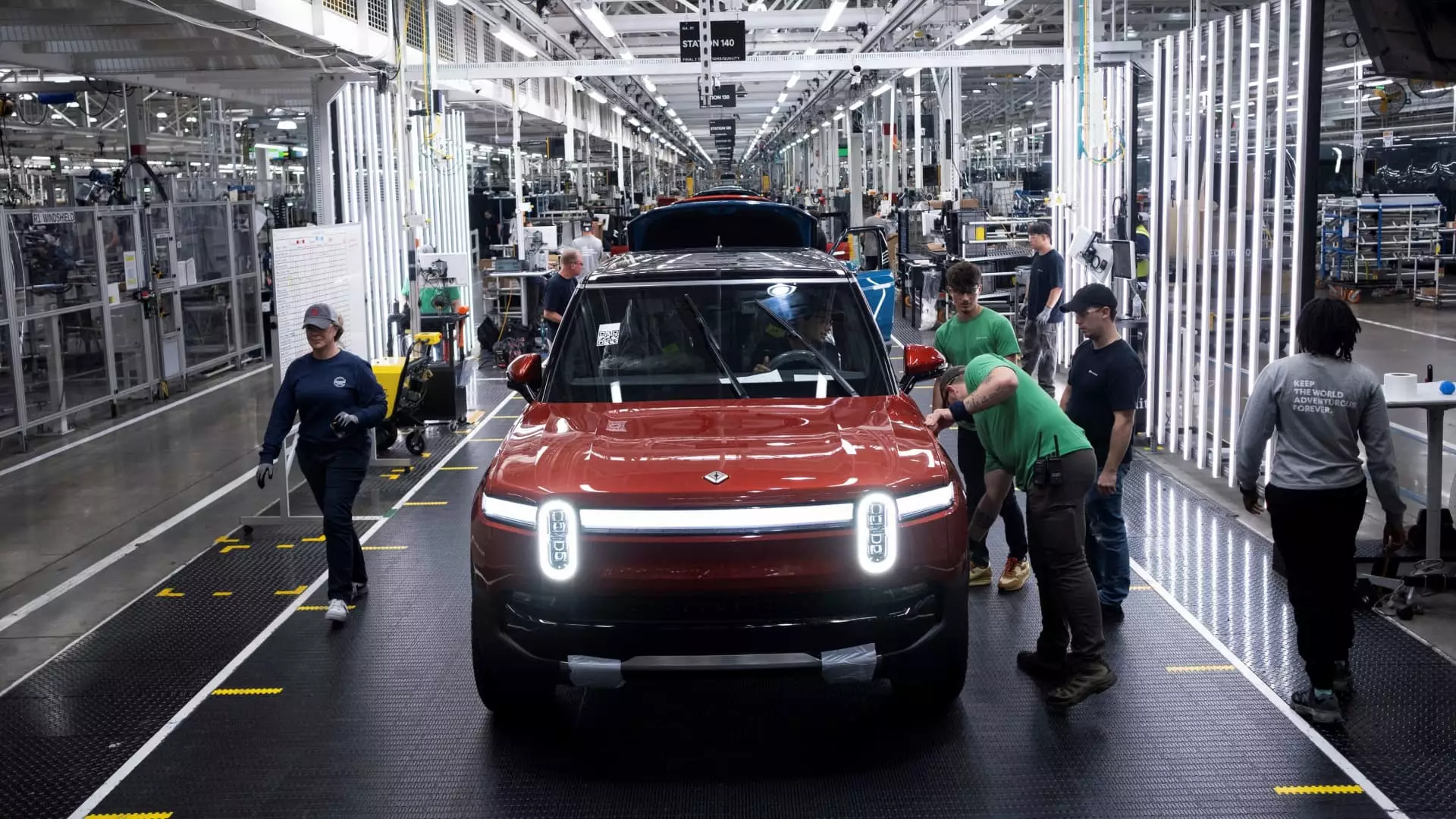Rivian Automotive has recently faced a series of hurdles that have led to disappointing financial results for the third quarter of 2023. Following an announcement that it significantly missed Wall Street’s expectations, Rivian revised its earnings forecast downward, prompting analysts and investors to recalibrate their perspectives on the electric vehicle (EV) manufacturer.
The recent earning report illustrated a concerning performance for Rivian. The company reported an adjusted loss per share of 99 cents, which was greater than the anticipated loss of 92 cents. This shortfall echoes a deeper trend, with reported revenues reaching $874 million, falling short of the $990 million that analysts had hoped for. This misalignment with expected figures raises critical questions about Rivian’s operational efficiency and strategic execution during an intensely competitive period for electric vehicle manufacturers.
Despite these negative outcomes, Rivian’s stock price showed slight resilience. Following the announcement, shares initially declined but later surged to close at $10.05, representing a 3.5% increase. This may suggest that some investors still harbor a degree of optimism regarding Rivian’s future, particularly as the company reaffirmed its target to achieve a “modest positive gross profit” in the forthcoming quarter. However, such a precarious position reflects the volatility in the EV market, where investor confidence can fluctuate rapidly based on financial disclosures.
Challenges in Production and Supply Chain Issues
A major headwind for Rivian has been the disruption in its supply chain. The company reported a 34.6% drop in revenue year over year, a decline exacerbated by challenges in sourcing necessary components for vehicle production. CEO RJ Scaringe acknowledged these struggles, describing the current circumstances as a temporary setback. However, the loss of revenue and a decline in production highlighted the critical vulnerabilities that Rivian faces in scaling its operations and meeting market demands.
In light of these challenges, Rivian had previously revised its annual production forecast, decreasing its target from 57,000 units to a range of 47,000 to 49,000 units. This adjustment reflects the real-world complexities of launching a new model while facing constrained supply chains, particularly in the automotive industry where the availability of parts is crucial to successful production timelines and quality assurance.
Looking ahead, Rivian is not merely focused on immediate recovery but is also laying the groundwork for long-term growth. A pivotal announcement coinciding with the earnings report was a partnership with LG Energy Solution, which is expected to bolster Rivian’s plans to supply U.S.-manufactured battery cells for future vehicle generations, particularly the upcoming R2 models set for release in 2026.
Strategic partnerships like these are essential for Rivian’s scalability and ability to innovate in the EV sector. As competition in the market intensifies, the ability to secure reliable and effective supply chains for core components, like battery cells, will serve as a determining factor in Rivian’s ability to enhance production and meet consumer demand.
The Road Ahead: A Focus on Profitability
In his comments, Scaringe underscored the company’s renewed focus on profitability, which is likely to resonate well with investors seeking tangible outcomes. Rivian’s emphasis on achieving a positive gross margin in the next quarter signals a commitment to turning its operational strategies and financial management towards sustainable growth. However, while this promise is encouraging, it remains contingent upon successfully navigating current production challenges and realizing the anticipated synergies from new partnerships.
As Rivian continues to make strides in vehicle innovation and align its operational goals, the path ahead is pivotal not just for its financial health, but also for its reputation in the rapidly evolving landscape of electric vehicles. Balancing immediate challenges with long-term strategic goals will be crucial for Rivian to emerge resilient in a competitive arena where market dynamics can shift unexpectedly.


Leave a Reply